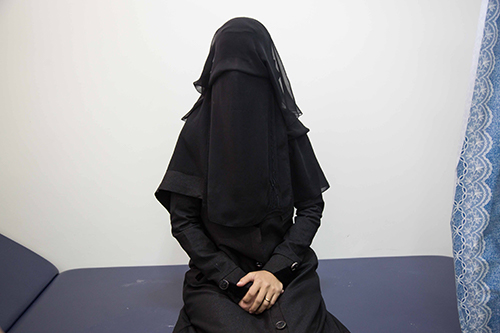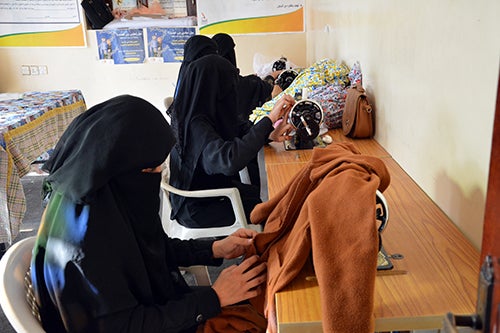News
In Yemen and around the world, obstetric fistula strikes the most vulnerable women
- 22 May 2020
News
AL HUDAYDAH, Yemen – Five years ago, Marwa* was a child bride living in the port city of Al Hudaydah. “I was almost 17 years old, and happy with my new life. I was a new bride and I got pregnant fast. I thought life was smiling at me,” she told UNFPA. She had no idea how quickly life would turn upside down.
Like many other women and girls in Yemen, she gave birth at home. But her labour was obstructed – a potentially fatal complication. Eventually, she delivered a healthy baby boy, but suffered a traumatic injury in the process – an obstetric fistula.
“I had sudden diarrhoea and faeces coming out of my birth canal,” she said. “I started to ask myself, why was this happening? I could not comprehend it.”
An obstetric fistula is a hole between the birth canal and bladder and/or rectum. It occurs during prolonged, obstructed labour without access to timely, high-quality medical treatment. The injury can cause chronic pain and infections, social rejection and deepening poverty.
This was Marwa’s fate: A month after her baby was born, her husband divorced her. “I had become what he described as ‘ruined’,” she said.

This traumatic birth injury affects the world’s most vulnerable women – those living in extreme poverty, without access to timely emergency care. Child brides are particularly vulnerable; childbearing in adolescence can increase vulnerability to obstetric fistula. Those with malnutrition and poor health also face heightened risks.
Hundreds of thousands of women are living with obstetric fistula today. The persistence of this condition is a sign of global social injustice and inequity.
And it could be worsening.
Today, as the world battles the COVID-19 pandemic, health systems risk being overstretched. Transportation barriers, movement restrictions, rising costs and other effects of the pandemic are making it harder for labouring women to reach safe delivery services. "The absence of timely medical treatment will likely spur a dramatic increase in obstetric fistula," said Dr. Natalia Kanem, UNFPA's Executive Director.
On 23 May, as the world observes the International Day to End Obstetric Fistula, UNFPA is sounding the alarm that the sexual and reproductive health needs of women and girls could be undermined. These services – including access to maternity care and safe delivery care – must be recognized as essential and life-saving.
Marwa’s fistula was only the start of her troubles. Conflict had erupted in Yemen, throwing communities into poverty and hobbling the country’s health system.
“They told me to be patient and accept my fate… I was told that my life is over,” Marwa said, crying over the memory of that time. “I felt so sorry for myself, my youth and my newborn baby who would grow up without a father. I felt my whole life had been taken away from me. What did I do to deserve such fate? I asked that myself repeatedly.”

Marwa spent as much time and money as she could searching for a cure. “It was useless. I knocked on many doors,” she said.
Finally, she visited a midwife named Na’ama, who had received training from a UNFPA-funded programme. “She was my last resort and my only hope.”
By chance, Na’ama had taken a course on preventing and identifying obstetric fistula, and she knew just where Marwa could get care.
Na’ama contacted the National Midwives Association, which runs a UNFPA-supported fistula treatment programme. Marwa was put on a waiting list.
“One day they called me and asked me to travel to Sana’a within a week.”
The fistula programme covered all her travel expenses. She was even able to bring her sister to look after the baby, and a male cousin; women often require a male guardian to travel within the country.
Marwa underwent a successful treatment surgery at Al Thawra Hospital.
Now, she says her life has been transformed. “I forgot all the pain I had gone through. I just felt joy and happiness,” she said.
UNFPA has supported the establishment of three fistula units across the country. Between 2018 and 2019, more than 100 fistula surgeries were successfully treated free of charge.
But today, Yemen’s health system is on the verge of collapse. Humanitarian funding for programmes in Yemen has dried up, even as the country grapples with the arrival of the COVID-19 pandemic. Hundreds of reproductive health facilities have closer or are set to close in the coming weeks.
A pledging conference is scheduled to take place, virtually, on 2 June.
*Name changed to protect privacy